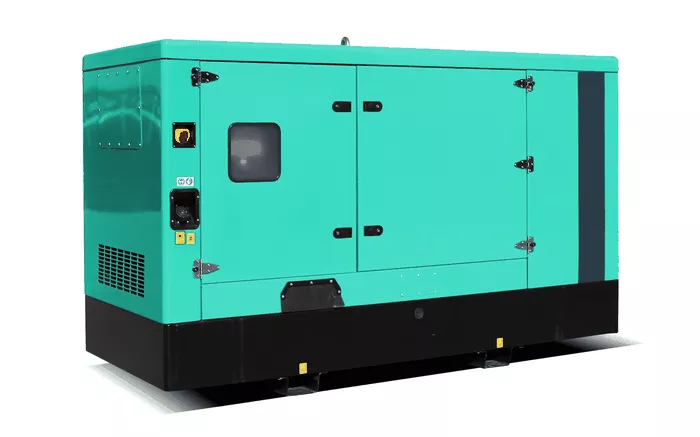A dual-fuel generator is a versatile power generation system capable of operating on two different types of fuel, usually gasoline and propane or diesel and natural gas. These generators provide enhanced flexibility, efficiency, and reliability, making them ideal for various applications, including emergency backup power, off-grid operations, and industrial uses. Understanding how a dual-fuel generator works, its benefits, and its applications can help users make informed decisions when selecting a power source.
Working Principle of a Dual-Fuel Generator
A dual-fuel generator operates on two fuel sources, often switching between them or blending them for optimal performance. The basic working principle involves:
Fuel Supply System: The generator is equipped with separate fuel supply lines for both fuels. Depending on the model, it may start with one fuel type and then transition to the other for efficiency.
Combustion Process: Inside the engine, the primary fuel (such as natural gas or propane) mixes with air before entering the combustion chamber. If the generator is a diesel-natural gas model, a small amount of diesel is still required to ignite the gas-air mixture.
Ignition System: The fuel mixture ignites via a spark plug (for gasoline-propane models) or by compression ignition (for diesel-natural gas models), generating mechanical energy.
Electricity Generation: The engine drives an alternator, which converts mechanical energy into electrical power that can be used for household, industrial, or commercial applications.
Fuel Switching Mechanism: Many dual-fuel generators allow users to manually or automatically switch between fuel types, ensuring continuous operation even if one fuel supply is depleted.
Advantages of Dual-Fuel Generators
Fuel Flexibility
One of the primary benefits of dual-fuel generators is their ability to run on different fuel types. This feature enhances availability, as users are not restricted to a single fuel source, making them highly useful in emergencies or locations with limited fuel access.
Extended Run Time
Since these generators can switch between fuels, they can operate for longer durations. Users can start with one fuel type and switch to another when needed, extending operational time and reducing downtime.
Cost Efficiency
Using propane or natural gas as a secondary fuel can be more cost-effective compared to gasoline or diesel. Users can select the cheaper fuel based on market prices, lowering operational costs.
Environmental Benefits
Some dual-fuel generators reduce carbon emissions by blending fuels. For instance, diesel-natural gas models produce lower levels of harmful emissions than pure diesel engines, making them more environmentally friendly.
Backup Power Reliability
Dual-fuel generators provide a reliable backup power source during power outages. If one fuel is unavailable, the generator can continue operating using the alternate fuel, ensuring an uninterrupted power supply.
Longevity and Durability
Compared to single-fuel generators, dual-fuel models often experience less wear and tear due to the optimized combustion process. This results in longer engine life and reduced maintenance costs.
Applications of Dual-Fuel Generators
Residential Use
Homeowners use dual-fuel generators as backup power sources during outages. These generators are particularly useful in areas prone to natural disasters such as hurricanes, where fuel shortages may occur.
Industrial and Commercial Operations
Industries that rely on continuous power supply, such as manufacturing plants, data centers, and hospitals, benefit from dual-fuel generators to ensure operations continue even during fuel supply disruptions.
Construction Sites
Construction sites often require portable power sources. Dual-fuel generators offer flexibility by allowing contractors to choose between fuel types based on availability and cost.
Off-Grid and Remote Areas
Remote areas with limited access to electricity use dual-fuel generators to power homes, telecommunications towers, and mining operations. The ability to switch between fuels ensures consistent power availability.
Marine and Agricultural Use
Dual-fuel generators are widely used in marine applications for ships and fishing vessels, where fuel availability varies. Similarly, in agriculture, they help power irrigation systems and farm equipment.
Maintenance and Safety Considerations
Regular Inspection and Maintenance
To ensure optimal performance, dual-fuel generators require regular maintenance, including checking fuel lines, cleaning air filters, and inspecting spark plugs or compression chambers.
Proper Fuel Storage
Storing fuel safely is crucial. Propane tanks should be kept in well-ventilated areas, and diesel or gasoline should be stored in approved containers away from heat sources.
Ventilation and Carbon Monoxide Safety
Generators should always be used in well-ventilated spaces to prevent carbon monoxide buildup. Installing carbon monoxide detectors is recommended for safety.
Switching Fuel Types Safely
Users should follow the manufacturer’s guidelines when switching fuel types to prevent damage to the engine or sudden power loss.
Conclusion
Dual-fuel generators provide a flexible, cost-effective, and reliable power solution for various applications. Their ability to operate on two different fuel types ensures an uninterrupted power supply, making them essential for homes, businesses, construction sites, and remote areas. By understanding how these generators work and their benefits, users can make informed decisions and maximize the advantages of dual-fuel technology.

